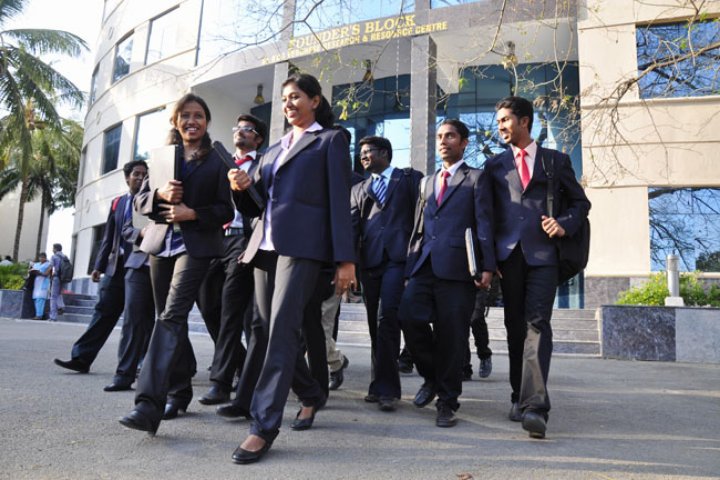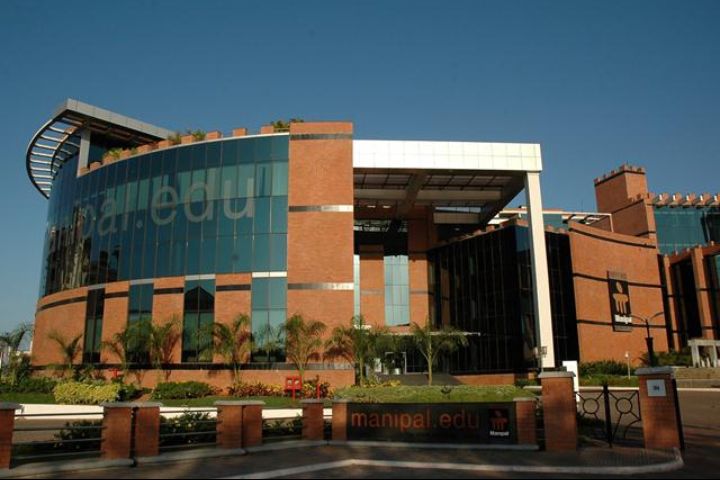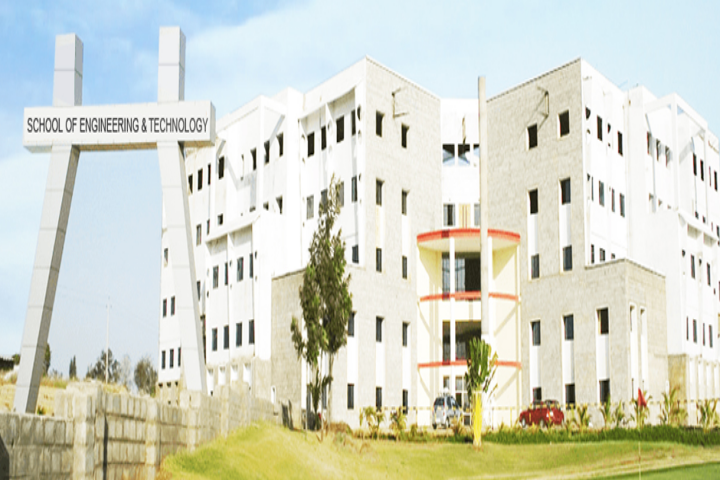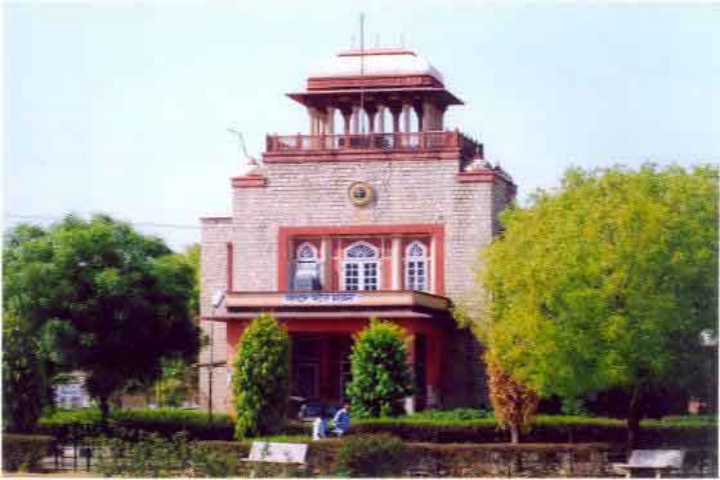
Banking Course Details - Fees, Subjects, Syllabus, Duration, Eligibility, Career Scope
Degrees offered: B.Com, M.Com, P.G.D, MBA, B.Com(Hons)
What is Banking
Banking is an industry that deals with cash, credit, and other financial transactions. There are various banking courses available for the student. Students studying these courses will understand the principles of Banking transactions and the diverse services offered by banks. More than 130 colleges in India offer banking courses at various levels.
Banking is a broad domain in the field of Finance and covers topics such as the history of banking, asset handling, accounting, advances or loans, investments, and trusts. There are various job roles in the banking sector such as bank clerk, banking associate, personal banker, and loan officer.
Highlights- Banking Course
| Particulars | Values |
|---|---|
Branch Name | Banking |
Degree | BBA, B.Com, B.Com ( Hons), PGDM, M.Com |
Duration | UG: 3 years PG: 2 years |
Eligibility | UG: 10+2 PG: Bachelor’s Degree in relevant discipline from a recognised institute |
Admission Process | Entrance Examination/ Direct Admission |
Top Entrance Exams | SET, CUET PG, UGAT, NPAT |
Average Course Fees | Rs. 19,550 to Rs. 3 Lakhs |
Career Options | Bank Clerk, Banking Associate, Personal Banker, and Loan Officer |
Average Salary | Rs. 6.54 LPA |
Top Recruiters | SBI, RBI, Indian Bank, Bank of India, Bank of Baroda, Canara Bank |
Specialisation or Similar Ones
The banking course is a specialised and broad domain in the field of Finance consisting of many topics of study including Banking Principles, Financial Markets, Investment Banking, and Economics. There are many different specialisations offered in the field of Banking which are similar or somewhat related to the Banking field. Mentioned below are some of the specialisations in the same:
B.Com Bank Management | PGD Banking Finance |
B.Voc Banking and Financial Services | Ph.D in Banking and Finance |
M.Com Banking and Finance | PGDM Banking and Financial Services |
Top Banking Colleges in India
Banking specialisations are offered by more than 130 colleges in India, both public and private. The admission is either based on an entrance exam or merit-based admission. Mentioned below are the top colleges offering Banking degree programmes in India.
| Colleges | Fees |
|---|---|
Rs. 82,500 | |
- | |
Rs. 39,000 | |
Rs. 1.05 Lakhs | |
Rs. 76,200 | |
Rs. 55,000 | |
Rs. 2.09 Lakhs | |
Rs. 19,550 | |
Rs. 82,500 | |
Rs. 2.10 Lakhs | |
- |
Note: The fee structure provided above can be for any particular Banking (Diploma/ Degree/PGD).
Top Private Banking Colleges in India
Private Colleges are known to provide quality education and also offer state-of-the-art infrastructure facilities for student’s convenience and comfort. More than 100 good private colleges are offering Banking courses, some of them are listed in the table below:
| Colleges | Fees |
|---|---|
- | |
- | |
Rs. 41,900 | |
Rs. 3,00,000 | |
Dombivli Shikshan Prasarak Mandal's KV Pendharkar College of Arts Science and Commerce, Dombivli | Rs. 31,930 |
Tata Institute of Social Sciences, School of Vocational Education, Mumbai | Rs. 96,000 |
Rs. 39,000 | |
- | |
- | |
- |
Top Government Banking Colleges in India
Government colleges are comparatively cheaper than private institutes and are well-known for providing exceptional education. Listed in the table below are the top government institutes in India that offer Banking courses:
| Colleges | Fees |
|---|---|
Institute of Distance Education, Chennai | Rs. 19,550 |
- | |
Raha College, Nagaon | - |
Manipur Institute of Management Studies | - |
Ramanujan College, New Delhi | Rs. 82,500 |
- | |
- | |
- | |
- | |
Government Meera Girls College, Udaipur | - |
Eligibility Criteria (UG & PG) of Banking
The eligibility criteria for the course vary depending on the institute. Students can check the same on the official website of the desired institute or on the programme brochure. Generally, for an undergraduate course, the candidate is required to pass their 10+2 grade with a valid score. Similarly, for a postgraduate course, they require a Bachelor’s degree in a relevant discipline.
Eligibility Criteria for UG Courses
To pursue Banking courses at the undergraduate level, candidates need to fulfill eligibility criteria. Mentioned below are the eligibility criteria for undergraduate courses in detail.
Students must complete 10+2 education or equivalent education from a recognised board.
They must also score a minimum of 50 per cent, the aggregate percent score may change depending on the institute. There may be a relaxation in aggregate scores for the candidates belonging to the reserved categories such as SC/ST/OBC.
Top Entrance Exams for UG Courses
There are entrance tests at the national and state levels conducted by different bodies for admission to undergraduate degree banking programmes. Some of the top Entrance Exams are mentioned below:
| Exam Name | Level | Conducting Body | Exam Schedule |
|---|---|---|---|
National | NTA | ||
University | Symbiosis University | - | |
University | NMIMS University | - | |
National | AIMA | - |
Eligibility Criteria for PG Courses
Candidates are advised to carefully follow the admission procedure after ensuring that they meet the eligibility criteria for postgraduate courses.
Students must have a Bachelor’s degree in a relevant discipline from a recognised institute.
They must score a minimum aggregate score of 50 per cent in the qualifying examinations.
They must also meet the entrance examination cut-off as specified by the institute to get admission to their desired course.
Top Entrance Exams for PG Courses
There is a top national-level entrance examination conducted by NTA (National Testing Agency) for admission to various master's degree programmes in Banking. The score of the CUET-PG entrance examination is accepted by 47 central universities in India. The details are as follows:
| Exam Name | Level | Conducting Body | Exam Schedule |
|---|---|---|---|
National | NTA |
Scope of Banking in India and Abroad
In India, the banking sector is experiencing significant growth due to economic development and increased financial literacy. The introduction of digital banking and financial inclusion policies has further expanded the scope of banking. Moreover, the demand for professionals in specialised areas like risk management and investment banking is on the rise.
Internationally, the banking industry offers diverse opportunities. With the advent of FinTech and digital transformations, the demand for skilled banking professionals is increasing. Countries with strong financial hubs like the USA, UK, and Singapore provide ample opportunities for career growth in banking. The scope for international banking professionals is vast and promising.
Course Fees Banking
| Minimum Fees | Maximum Fees | |||
|---|---|---|---|---|
| Private | Government | Private | Government | |
| UG | ||||
| PG | ||||
| DOCTORAL | ||||
| DIPLOMA | ||||
Course Subjects
The course curriculum of the Banking course depends on many factors such as the type of institute, and level of education. Some of the subjects offered in the Banking course are Banking Laws, Financial Markets, Marketing of Financial Services, Commercial Bank Management, and Principles of Finance.
Banking Syllabus for UG Courses
Banking courses are offered in various degree programmes at the undergraduate level such as BBA, B.Com, and B.Voc. Some of the common subjects found in the course curriculum are Principles of Accountancy, Financial Accounting, and Banking Law. In the table below we have mentioned the syllabus of Bharathidasan University.
Semester 1 | |
Principles of Accountancy | Indian Financial System |
Business Management | |
Semester 2 | |
Business Tools for Decision Making | Banking Theory Law and Practice |
Business Economics | - |
Semester 3 | |
Financial Accounting | Co-Operative Banking |
Business Law | Banking Practices and Indian Banking System |
Semester 4 | |
Credit Management | Services Management |
Business Communication | Rural Banking or Elements of Insurance |
Semester 5 | |
Corporate Accounting | E-Banking |
Computer Applications and Banks | Management Accounting |
Entrepreneurial Development or International Marketing | - |
Semester 6 | |
Financial Management | Income Tax Theory Law and Practice |
Financial Services | Foreign Exchange Management or Investment Banking |
Banking Syllabus for PG Courses
Banking courses are also offered at the postgraduate level in various degree programmes such as M.Com and PGDM. Some of the subjects are Practical Banking, Rural Banking, Advanced Financial Accounting, Banking Law and Bank Marketing. Mentioned below is the syllabus of Madurai Kamaraj University for their M.Com Banking course:
Semester 1 | |
Financial Markets and Services | Advanced Financial Accounting |
Auditing and Assurance | Applied Cost Accounting |
Banking Technology (E) | - |
Semester 2 | |
Company Law and Corporate Governance | Marketing Management |
Financial Management | Entrepreneurial Development and Project Financing |
Advanced Business Statistics (E) | - |
Semester 3 | |
Advanced Corporate Accounting and Reporting | Project Management |
Strategic and Human Resource Management | Applied Direct Taxation and E-Filing (E) |
Insurance and Risk Management (NME) | |
Semester 4 | |
Research Methodology | Operations Research / Project |
Applied Indirect Taxation (E) | Computerised Accounting and Office Automation |
Advanced Management Accounting | - |
Careers in Banking
Banking as a field gives many opportunities to students, as they can pursue Banking courses like a BA in Banking. Various factors like digitisation of currency, government reforms, and more and more opening of banks and their branches have made the banking career desirable for a lot of individuals. Banking as a career gives chances to aspiring students from all subjects.
| Job Profiles | Job Description |
|---|---|
PO (Probationary Officer) | Probationary Officers are professionals of a bank who look after public relations and monitor and regulate branch activities and tasks. They address customer-related issues and grievances, approve and monitor daily branch and customer transactions, and handle loans. |
Bank Clerk | Bank Clerks are professionals who deal with customers, receive and pay out money, and many other day-to-day tasks. They also serve as the primary point of contact for most bank customers, administering most basic banking transactions and answering. |
Bank Manager | Bank Managers are responsible for coordinating and directing the operational functions of the bank. They oversee front-office operations, provide high levels of customer service and direct regular team meetings and training sessions. They are the charge of the local branch of the bank. |
Marketing Analyst | Marketing analysts are professionals responsible for studying market conditions to assess the potential sales of products and services. Their duties include forecasting and monitoring sales trends, gathering consumer and competitor data, preparing reports for management, and utilising statistical software for data analysis. |
Upcoming trends
The banking sector in India is witnessing a significant shift with the advent of new trends. The rise of digitisation and digital banking, coupled with the integration of emerging technologies like AI and API, is revolutionising the industry. Additionally, the standardisation of financial systems and the ability to capitalise on technology investments are shaping the future of banking.
Furthermore, banks are transitioning from transactional services to value-driven advisory services, re-imagining customer relationships. This introduction will explore these trends and their potential impact on the banking landscape in India. Some of the upcoming trends in the Banking industry are:
- Generative AI
- Open Banking
- Sustainability and ESG
- Cloud Technology
- Cybersecurity
Certifications for Banking
 Association of Certified Anti-Money Laundering Specialists
Association of Certified Anti-Money Laundering Specialists CAIIB
CAIIB Certified Regulatory Compliance Manager
Certified Regulatory Compliance Manager JAIIB
JAIIBJob Profiles and Top Recruiters
 Bank of Baroda
Bank of Baroda State Bank of India
State Bank of IndiaThere are many areas where Banking graduates can work such as Banks, Financial Institutions, Government Sectors, and Large Firms and Organisations. Students can also prepare for banking exams conducted by various banks such as the State Bank of India ( SBI), and the Reserve Bank of India ( RBI).
Average Salary
The average salary of a Banking course graduate depends on many factors such as the location of the company, type of bank, job profile applied by the candidate, and skills and experience of the candidate. Mentioned below are the salaries of some of the top career options in the field of Banking.
| Job Profiles | Average Salary |
|---|---|
Probationary Officer | Rs. 5.65 LPA |
Bank Clerk | Rs. 9.34 LPA |
Bank Manager | Rs. 9.2 LPA |
Marketing Analyst | Rs. 11 LPA |
Source: Glassdoor
Note: Salary may vary depending on various factors.
Required Skillset for Banking
Banking is a field that requires dedication and hard work, therefore, candidates need to have certain skills to do well in this field. Some skills include Logical Skills, Financial Aptitude, and Sales and Negotiation. Mentioned below are the skills required by the candidates in the field of Banking:
- Good Communication Skills
- Sales and Negotiation
- Mathematical Skills
- Logical Skills
- Financial Aptitude
- Analytical Thinking
Course Curriculum for Banking
The course curriculum of banking primarily focuses on imparting knowledge about the financial sector and its functioning. It includes subjects like Financial Management, Commercial Bank Management, and International Banking and Forex Management. Students learn about banking laws, operations, and practices.
In addition, the curriculum also covers areas like investment banking, risk management, and insurance. It aims to equip students with the necessary skills to understand and solve problems related to banking and financial markets. This comprehensive curriculum prepares students for a wide range of roles in the banking sector.
Popular Banking Entrance Exams in India
Frequently Asked Questions (FAQs)
Question: What are some top recruiting companies and Banks hiring graduates?
Answer :
Some of the top recruiters are SBI, RBI, Indian Bank, Bank of Baroda, and Canara Bank.
Question: What is the duration of Banking courses?
Answer :
The duration of a Banking course depends on the level of education. An undergraduate degree in Banking is generally for three years, and a postgraduate degree is for two years.
Question: What are the degrees offered in Banking courses?
Answer :
There are many degrees offered in the field of Banking such as BBA, B.Com, PGDM, and M.Com. Candidates are advised to check the eligibility criteria and the admission process of the desired degree programme in Banking.
Question: What are some necessary skills that the candidates must have to do well in a Banking career?
Answer :
There are certain skills that the candidates must possess to perform well both academically and professionally in the field of Banking such as Good Communication skills, Sales and Negotiation, Logical Skills, Financial Aptitude, and Analytical Thinking.
Question: What are the upcoming trends in the field of Banking?
Answer :
Some of the upcoming trends and topics in the Banking industry are Generative AI, Open Banking, Sustainability and ESG, Cloud Technology, and Cybersecurity.
Question: Who is eligible for the Banking course?
Answer :
For an undergraduate course in Banking, the candidates need to have cleared their 10+2 education with a valid aggregate score. For a postgraduate course, they need to complete a Bachelor's degree in Banking or a related discipline with a valid minimum percentage score.
Question: What are the most popular career options in the field of Banking?
Answer :
There are many career options in the field of Banking, some of the top career options are Probationary Officer, Bank Clerk, Bank Manager, and Marketing Analyst.
Question: What is the average salary of a Banking graduate?
Answer :
The salary depends on many factors such as the location of the company, the education and experience of the candidate, and the job profile applied by the candidate. The average salary is Rs. 6.54 LPA.
Question: What are the average course fees of a Banking course?
Answer :
The average course fees depend on the type of institution and the level of education. The average fee ranges from Rs. 19,500 to Rs. 3 lakhs.
Question: What are the entrance examinations in the field of Banking?
Answer :
There are numerous banking entrance exams. Some of the most popular ones are SET, CUET UG, CUET PG, and NPAT.
Questions related to Banking
Sir i have completed my base module course in NERIST. So i want to know that is "Base Module Certificate" is equivalent to 12 certificate and can i apply it for Government Exams like:-SSC, BANKING,RRB exams ?
Hello
The Base Module Certificate from NERIST (North Eastern Regional Institute of Science and Technology) is considered equivalent to Class 10 (Secondary School level) and not Class 12.
For most government exams like SSC CHSL , Banking (Clerk/PO) and RRB NTPC , the minimum requirement is Class 12 (Higher Secondary). Since the Base Module Certificate is not equivalent to Class 12 , it may not be eligible for such exams.
However, if you complete the Diploma Module (after Base Module) or Senior Secondary from NIOS , you may become eligible for these exams. You should check the specific eligibility criteria for the exam you wish to apply for.
ALL THE BEST
Hi Sir/Mam, Today current year 2025 . I m diploma engineering (polytechnic) student my age is 18 can I apply for RRB clerk or IBPS clerk banking exam ma i eligible to apply.
You are 18 years old and currently pursuing a diploma in engineering, you do not meet the minimum age requirement of 20 years or the educational qualification of holding a bachelor's degree. Therefore, you are not currently eligible to apply for the IBPS Clerk examination.
You meet the age requirement for the RRB Clerk examination. However, since you have not yet completed a bachelor's degree, you do not meet the educational qualification criteria.
i want to make a career in stock market as a stock analyst but dont have degree in banking or economics sector. what can i do?
Hello Dimple ,
Here are steps you can take to become a stock analyst without a degree in banking or economics:
- Learn Basics: Start by understanding stock market fundamentals, financial statements, and investment strategies through books and online resources.
- Take Online Courses: Enroll in courses on platforms like Coursera or Udemy focusing on financial analysis and stock market trends.
- Get Certified: Pursue certifications like CFA (Chartered Financial Analyst) to boost your credibility.
- Stay Informed: Follow financial news, reports, and market movements to understand current trends.
- Practice: Try paper trading or invest in small amounts to develop your skills.
- Network: Connect with industry professionals for insights and career opportunities.
Hope it helps !
My fathers name is Ajit kumar sharma in my adhar card and all documents but in his adhar card and documents his name is Ajit kumar. Will it cause any problem in future. Im in first year of graduation and preparing for ssc, banking and other government exams.
A minor difference in father's name between your documents and his won't matter much in most cases, especially when sitting for an SSC exam.
But prepared never hurts. Here are some precautions you can take:
Clarify with the Exam Conducting Body:
Reach out to the actual body that conducted the exam (like SSC) and ask what their take is on a different father's name.
They may also counsel whether you should give such warnings.
Collect Evidence Documents:
Ensure that you have a photostat of your father's Aadhaar card and other evidence documents which will support your claim.
You will be needed to give more evidence about relationship, for example, a family photo or birth certificate.
Consult a Lawyer
If you are so concerned, consult a lawyer or solicitor who is a legal advisor. They will be able to provide you with concrete counsel on your case.
True Information: Both at the time of forms and during the application-admission process, ensure you give updated and accurate information.
Document Verification: As and when required both in the application process and during admission, be prepared for document verification.
Ask about changes: Seek any change in the eligibility criteria or documents as early as possible.
You can, therefore, reduce the problems that might arise because of this name mismatch.
Is a BDS graduate eligible to give banking examinations?
Hello aspirant,
Yes, you are definitely eligible for banking examinations. Anyone who have completed graduation from any stream is eligible for banking examinations. A student in the last year of his or her graduation is also eligible for banking exams.
Thank you
Hope it helps you.











 Answer later
Answer later










